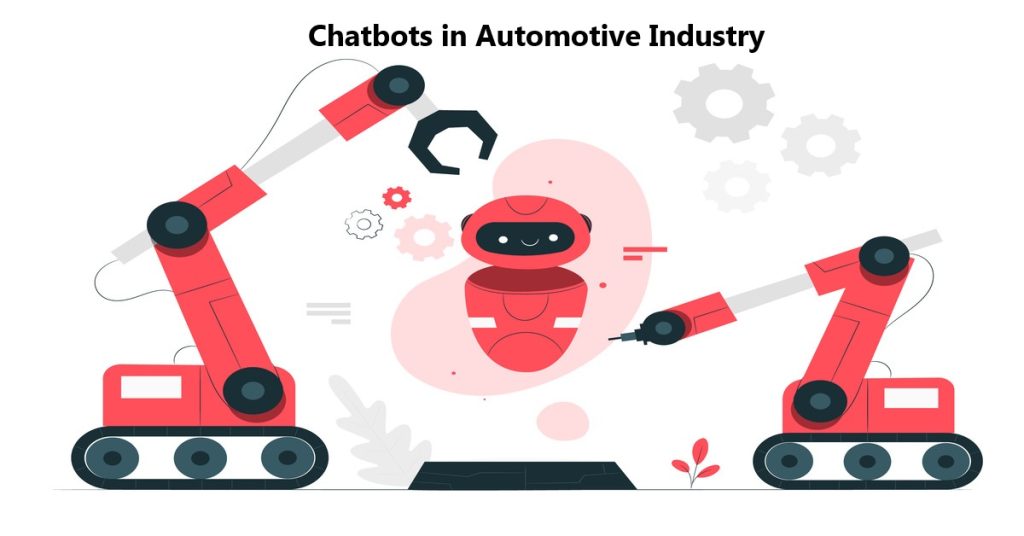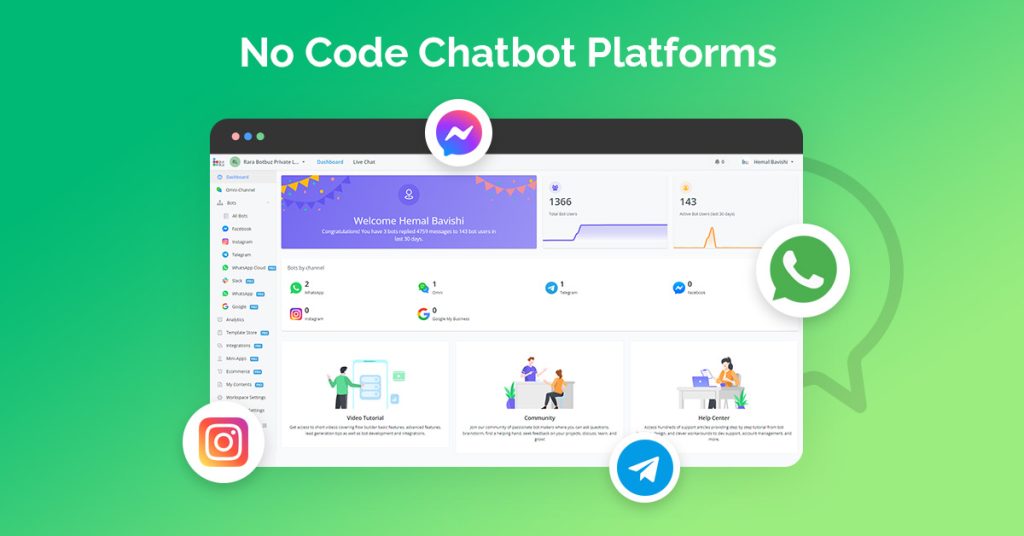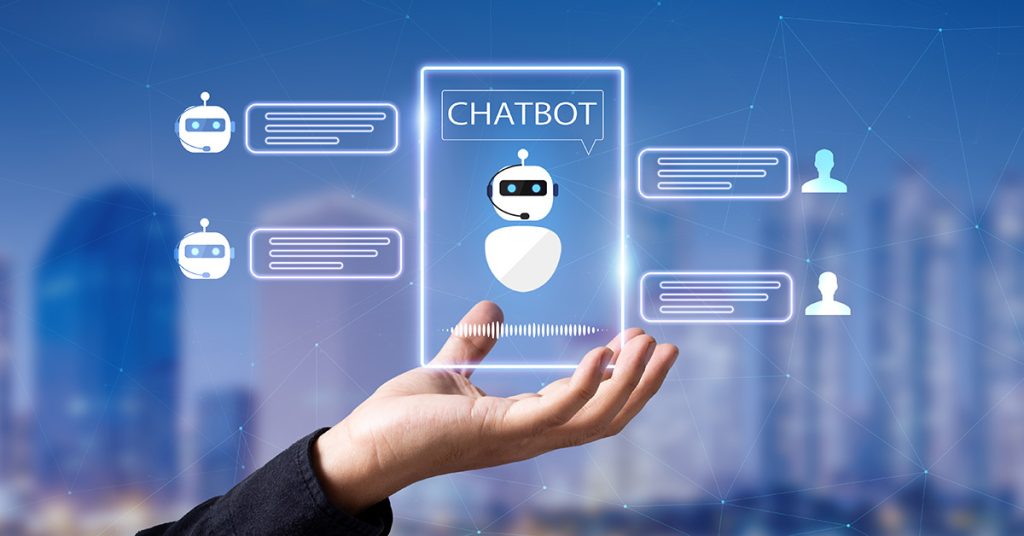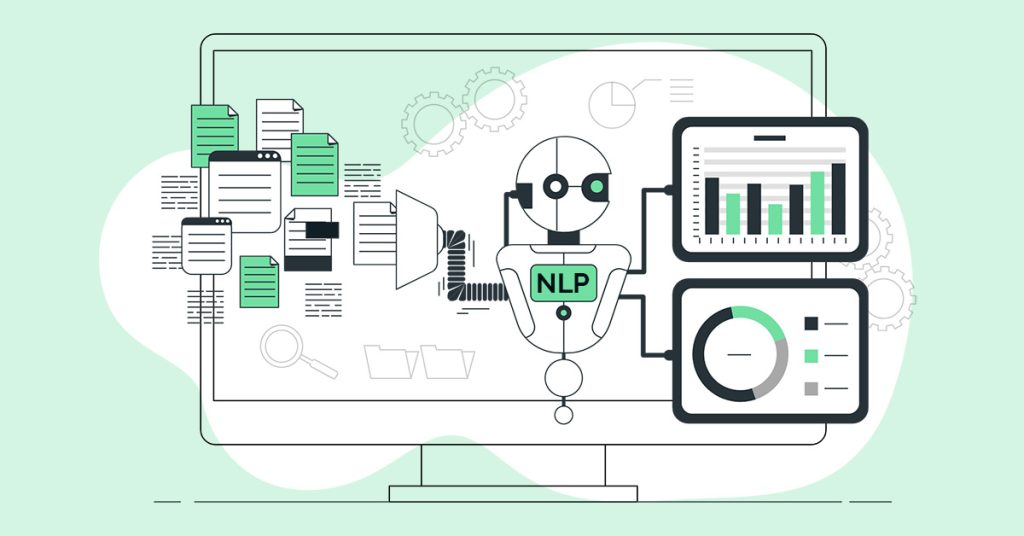- The Rise of Chatbot in the Automotive Sector :
- Enhancing Customer Support :
- Streamlining Sales and Marketing :
- Interactive Showrooms and Virtual Test Drives :
- Personlized Recommendations :
- Benefits of Personlized Vehicle Recommendations :
- Maintenance and Service :
- Enhancing Autonomous Vehicles :
- Challenges and Concerns :
- How to Address the Challenges and Concerns ?
- Botbuz Chatbot in Automotive Industry :
Welcome to the Future : Chatbots Drive Automotive Innovation
Chatbots are revolutionizing the automotive sector. They are transforming the way businesses engage with customers and deliver value. From pre-sales to after-sales, chatbots are streamlining processes, enhancing experiences and driving innovation.
The Rise of Chatbots in the Automotive Sector :
Chatbots are rapidly transforming the automotive sector, revolutionizing customer engagement, sales, and service. They provide 24/7 support to personalize interactions & automating tasks. Thus, driving innovation and improving the overall customer experience.
The automotive industry is increasingly embracing chatbots. It enhances customer experiences, automates tasks and accelerates innovation. According to a report by Grand View Research, the global automotive chatbot market is expected to reach $2.7 billion by 2030. It is growing at a CAGR of 24.7% from 2023.
Enhancing Customer Support :
Chatbots, powered by artificial intelligence (AI) are transforming the automotive customer service landscape. It provides on-the-go assistance and faster issue resolution. They are revolutionizing the way automotive businesses interact with their customers.
24/7 Support – One of the key benefits of chatbots is that they can provide 24/7 support to customers. This is valuable in the automotive industry where customers have questions or need assistance at any time of day or night. Chatbots can also provide support in multiple languages. Thus, making them accessible to a wider range of customers.
Faster Issue Resolution – Chatbots can also help automotive businesses to resolve customer issues more quickly. It automates repetitive tasks and provides customers with self-service options. Thus, reducing the time it takes to resolve issues. This can lead to improved customer satisfaction and loyalty.
Enhanced Customer Experiences – Chatbots can also enhance the overall customer experience. For example, chatbots can provide customers with personalized recommendations. It also answers their questions about different vehicles & services & event schedule appointments. It helps automotive businesses to build stronger relationships with their customers & increase sales.
Streamlining Sales and Marketing :
Accelerated Buying Process – Chatbots can help to accelerate the automotive buying process by providing customers with 24/7 access to information and support. Customers can use chatbots to learn about different vehicles, compare features and prices, and schedule test drives. This can help customers to make more informed decisions about their purchases and to buy vehicles more quickly.
Streamlined Lead Generation – Chatbots can also be used to streamline lead generation efforts. Chatbots can be integrated with CRM systems to capture customer contact information and to qualify leads. Chatbots can also be used to segment leads and to send them targeted marketing messages. This can help automotive businesses to generate more high-quality leads and to convert them into customers more effectively.
Boosted Conversions – Chatbots can also help to boost conversions by providing customers with a personalized and engaging experience. Chatbots can be used to answer customer questions, provide product recommendations, and even negotiate prices. This can help automotive businesses to close more deals and to increase their sales.
Interactive Showrooms and Virtual Test Drives :
Chatbots are transforming the car shopping experience. It creates virtual showrooms and offers interactive car tours. This allows consumers to shop for vehicles from the comfort of their own homes. Thus, get a better understanding of different vehicles before they ever visit a dealership.
Virtual Showrooms – Chatbots can create virtual showrooms where customers can browse different vehicles. They can also learn about their features & specifications & even take a virtual test drive. This can be a convenient & informative way for customers to shop for vehicles without having to visit a physical dealership.
Interactive Car Tours – Chatbots can also offer interactive car tours. Customers can use chatbots to ask questions about different vehicles. They can get personalized recommendations & even take a virtual tour of the inside and outside of a vehicle. This can help customers to get a better understanding of different vehicles & to make more informed decisions about their purchases.
Revolutionizing Car Shopping – Chatbots are revolutionizing the car-buying experience by making it more convenient, informative & engaging for customers. Chatbots can provide customers with 24/7 access to information and support. They can help customers to find the right vehicle for their needs without having to visit a physical dealership.
Personalized Recommendations :
Chatbots are revolutionizing the car-buying experience by providing personalized vehicle recommendations. Chatbots can learn about customer’s needs and preferences through AI and ML. They use this information to provide tailored recommendations.
How Chatbots Provide Personalized Vehicle Recommendations ?
Chatbots use a variety of methods to provide personalized vehicle recommendations to customers. Some common methods include :
Asking questions : Chatbots can ask customers questions about their needs and preferences. They can ask questions such as their budget, family size, driving habits & desired features.
Analyzing customer data : Chatbots can analyze customer data. They can analyze their browsing history & purchase history, to learn about their interests.
Using machine learning : Chatbots can use machine learning algorithms to identify patterns in customer data. Thus helping them to make personalized recommendations.
Benefits of Personalized Vehicle Recommendations :
Personalized vehicle recommendations can benefit both consumers and automotive businesses. For consumers, personalized recommendations can make the car-buying process more efficient and less stressful. Customers do not have to spend time researching different vehicles on their own. They can be confident that they are getting recommendations for vehicles that are a good fit for their needs & budget.
For automotive businesses, personalized recommendations can lead to increased sales & conversions. When customers receive recommendations for vehicles that they are interested in, they are more likely to make a purchase. Additionally, personalized recommendations can help automotive businesses to build relationships with their customers by showing that they care about their individual needs.
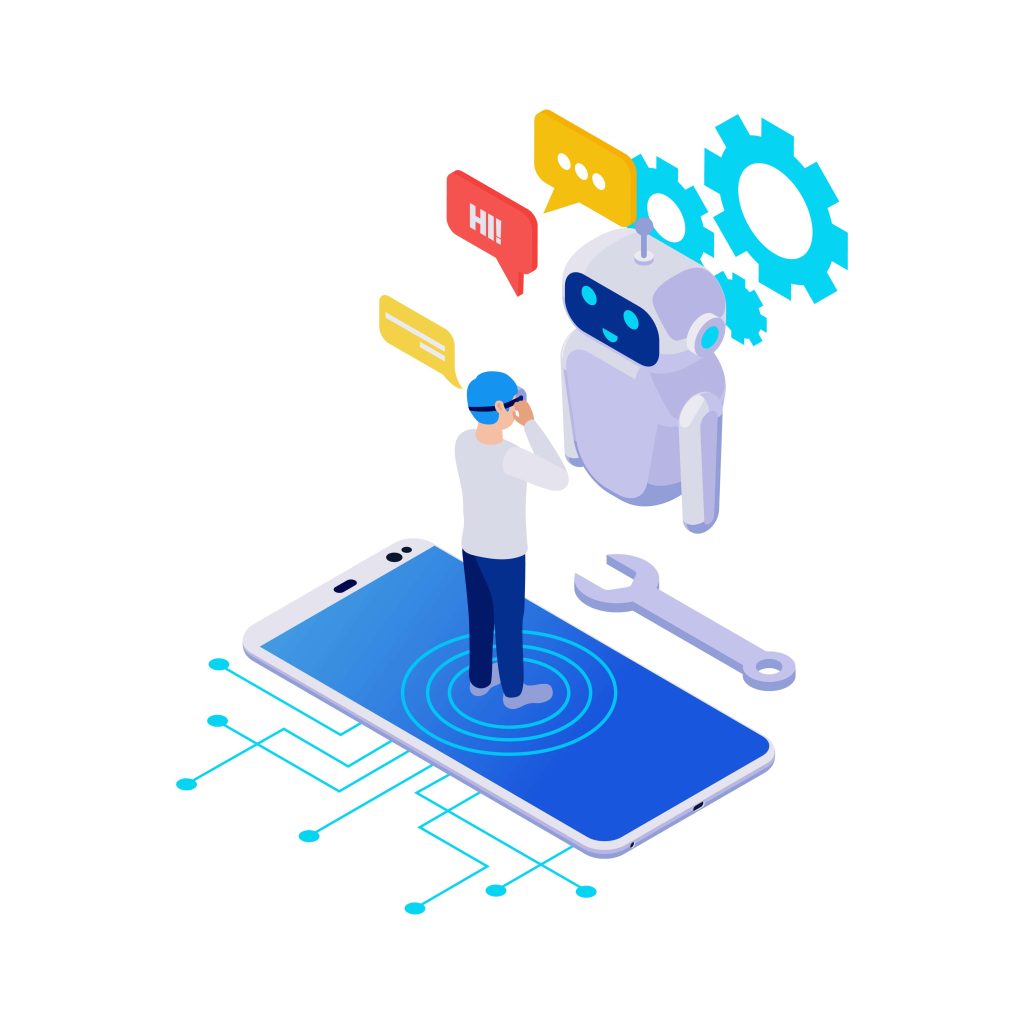
Maintenance and Service :
Chatbots are transforming the automotive maintenance and repair industry. It is empowering businesses to optimize scheduling, streamline operations & deliver superior customer service.
Optimized Scheduling
Chatbots can help automotive businesses to optimize scheduling by providing customers with 24/7 access to appointment booking. Customers can use chatbots to schedule appointments for maintenance services, repairs, and roadside assistance. This can help businesses to reduce the time it takes to schedule appointments and to improve customer satisfaction.
Streamlined Operations
Chatbots can also help automotive businesses to streamline operations by automating repetitive tasks. For example, chatbots can generate & send appointment reminders. It also helps to confirm appointments with customers & track the status of appointments. This can free up human employees to focus on more complex and high-value tasks.
Enhanced Customer Service
Chatbots can also help automotive businesses to enhance customer service by providing customers with 24/7 support. Chatbots can answer customer questions about maintenance and repair services, provide status updates on appointments, and even help customers to troubleshoot vehicle problems. This can help automotive businesses to build stronger relationships with their customers and increase customer satisfaction.
Enhancing Autonomous Vehicles :
Chatbots are rapidly evolving into a critical component of autonomous vehicles, empowering businesses to enhance the passenger experience, improve safety and accelerate innovation.
Enhanced Passenger Experience
Chatbots can help to enhance the passenger experience in autonomous vehicles by providing personalized recommendations, answering questions, and offering support. For example, chatbots could be used to:
- Recommend activities and destinations: Chatbots could use passenger preferences and historical data to recommend activities and destinations during the ride.
- Answer questions about the vehicle and the journey: Chatbots could answer passenger questions about the vehicle’s features, the estimated time of arrival, and the route being taken.
- Provide support for special needs: Chatbots could provide support for passengers with special needs, such as those with disabilities or language barriers.
Improved Safety
Chatbots can also help to improve safety in autonomous vehicles by monitoring the vehicle’s systems and providing passengers with information about potential hazards. For example, chatbots could:
- Alert passengers to potential hazards : Chatbots could alert passengers to potential hazards, such as pedestrians or other vehicles in the road.
- Provide instructions in the event of an emergency : Chatbots could provide passengers with instructions in the event of an emergency, such as how to exit the vehicle safely.
- Assist with communication with first responders: Chatbots could assist with communication with first responders in the event of an accident.
Accelerated Innovation
Chatbots can also help to accelerate innovation in the autonomous vehicle industry. For example, chatbots could be used to:
- Collect feedback from passengers : Chatbots could be used to collect feedback from passengers about their experience riding in an autonomous vehicle. This feedback could be used to improve the vehicle’s systems and to develop new features.
- Test new features and capabilities : Chatbots could be used to test new features and capabilities in autonomous vehicles in a safe and controlled environment.
- Train autonomous vehicles : Chatbots could be used to train autonomous vehicles how to navigate different road conditions and scenarios.
Challenges and Concerns :
While chatbots offer a number of potential benefits for the automotive industry, there are also some challenges and concerns that need to be addressed before they can be widely implemented in vehicles.
Challenges
One of the biggest challenges in implementing chatbots in vehicles is the need to develop systems that are safe and reliable. Chatbots need to be able to understand and respond to a wide range of natural language queries, even in noisy and distracting environments. They also need to be able to handle complex tasks, such as navigating maps and scheduling appointments, without making any mistakes.
Another challenge is the need to integrate chatbots with existing vehicle systems. Chatbots need to be able to access and control vehicle data, such as the vehicle’s speed and location. They also need to be able to communicate with other vehicle systems, such as the infotainment system and the navigation system.
Privacy Concerns
Chatbots collect a lot of data about users, including their personal information, their location, and their driving habits. This data can be used to improve the chatbot’s performance, but it can also be used for other purposes, such as targeted advertising or marketing. It is important to ensure that chatbots are designed with privacy in mind and that users are aware of how their data is being used.
How to Address the Challenges and Concerns?
There are a number of ways to address the challenges and concerns associated with implementing chatbots in vehicles,
One way to address the safety and reliability challenge is to use a variety of testing and validation techniques to ensure that chatbots meet the highest standards. Chatbots can also be programmed to be conservative in their responses and to err on the side of caution.
Another way to address the integration challenge is to use open standards and APIs. This will make it easier to integrate chatbots with different vehicle systems.
To address privacy concerns, chatbots should be designed with privacy in mind. This means collecting only the data that is necessary for the chatbot to function and providing users with clear and concise information about how their data is being used. Users should also have the ability to opt out of data collection and to have their data deleted.
Botbuz chatbot in Automotive Industry :
Botbuz is a conversational AI platform. It provides powerful tools & resources to build chatbots for any industry, including automotive.
Sales and marketing :
Botbuz chatbots can be used to generate leads, qualify prospects, and schedule appointments. They can also provide customers with information about different vehicles & services. It also helps to answer their questions about the sales process.
Botbuz chatbots can provide customers with 24/7 support. They can answer customer questions, resolve issues, and schedule service appointments. Botbuz chatbots can provide proactive support to customers by identifying & addressing potential issues before they even occur.
Maintenance and repair:
Botbuz chatbots can help customers with vehicle maintenance and repair. They can schedule appointments, answer questions about repairs & track the status of repairs. Botbuz chatbots can also be used to provide customers with personalized recommendations for maintenance & repair services.
Aftermarket services :
Botbuz chatbots can provide customers with information about aftermarket services, such as extended warranties, roadside assistance & financing. They can also help customers purchase aftermarket services & track the status of their orders.
Botbuz chatbots are easy to build & use. They can be customized to meet the specific needs of any automotive business. Botbuz also offers a variety of features and resources to help businesses get the most out of their chatbots. It includes features such as analytics, reporting and integration with other systems.
